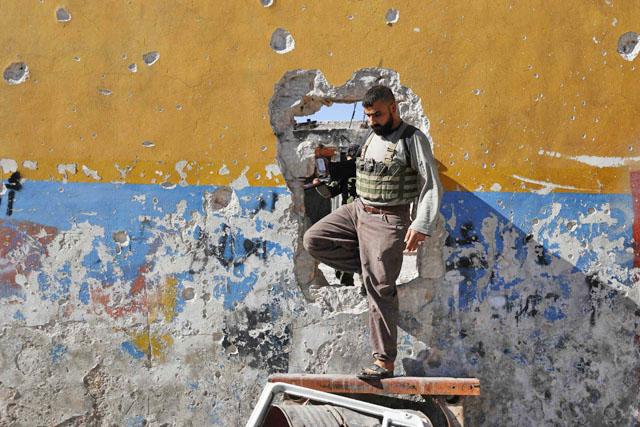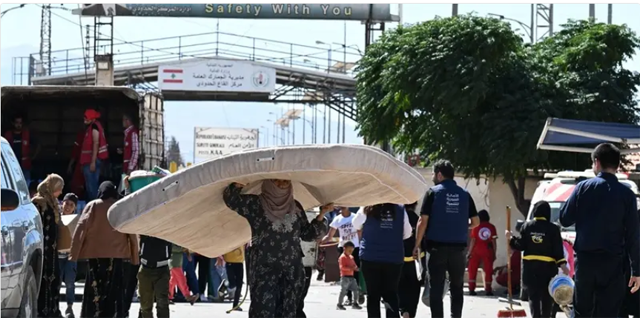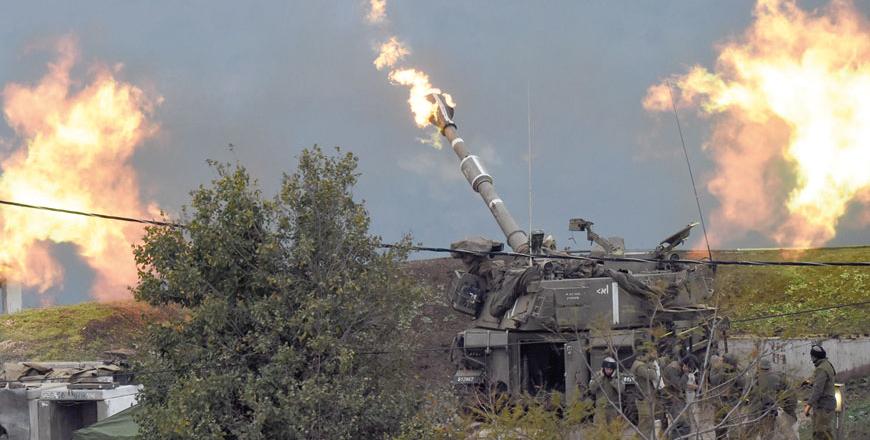You are here
Israel hits two ‘Hizbollah fighters’ on Syria frontier
By AFP - Mar 06,2014 - Last updated at Mar 06,2014
OCCUPIED JERUSALEM — Israel’s army said Wednesday it struck two Hizbollah fighters as they were planting a bomb near the Israeli-Syrian frontier, a week after an air raid against the group inside Lebanon.
Tensions have been mounting between Israel and Hizbollah since the outbreak of Syria’s uprising, with Israel warning it will do “everything necessary” to prevent the transfer of advanced weapons from the Damascus regime to its Lebanese Shiite ally.
Israeli army sources said they expected further confrontation after Hizbollah threatened to retaliate for the February 24 bombardment, which was the first reported Israeli air raid against the militant group inside Lebanon since the 2006 war.
“Earlier today, two Hizbollah-affiliated terrorists were identified attempting to plant an explosive device near the Israel-Syria border in the northern Golan Heights,” Israel’s army announced in a statement Wednesday morning.
Israeli troops “fired towards the suspects [and] hits were identified,” it said.
The army did not specify what weapons were used to fire at the suspected Hizbollah members.
Military sources told AFP, on condition of anonymity, confirmed the suspected Hizbollah fighters were wounded, without elaborating on the seriousness of the injuries.
Hizbollah was not immediately available for comment.
“This incident is no surprise, and we believe that clashes with Hizbollah could follow in the coming days,” the military sources told AFP.
“After Hizbollah threatened last week to retaliate for the army raid, Israeli special forces were deployed at the border with Syria,” they said.
The incident came just over a week after reports that Israeli warplanes bombarded a Hizbollah position on the Lebanese-Syrian border.
Hizbollah threatened to retaliate for what was the first reported Israeli air raid on a position of the Shiite movement inside Lebanon since the 2006 war, which killed more than 1,200 people in Lebanon, mostly civilians, and some 160 Israelis, mostly soldiers.
“This new attack amounts to blatant aggression against Lebanon, its sovereignty and territory,” the armed movement said at the time, adding that “it will not stand without a response from the Resistance, which will choose the appropriate time, place and means”.
Israel neither confirmed nor denied carrying out the two February 24 strikes outside the Lebanon border town and Hizbollah bastion of Nabi Sheet, which were reported by Lebanese media and then acknowledged by the group.
Israeli warnings, reported raids
But Prime Minister Benjamin Netanyahu said Israel would do “everything that is necessary in order to defend the security of Israel,” adding cryptically: “We will not say what we’re doing or what we’re not doing.”
Israel is bent on halting any transfer of weapons to its archenemy Hizbollah, which has sent thousands of fighters across the border to aid Syrian President Bashar Assad’s regime as it battles Sunni-led rebels.
In May 2013, Israel launched two raids targeting what it said were arms convoys near Damascus destined for Hizbollah.
And in November, there were reports of an Israeli strike against a Syrian air base where missiles to be supplied to Hizbollah were located.
Syria has long provided arms and other aid to Hizbollah, and served as a conduit for Iranian military aid to the movement.
Hizbollah, which brands itself a resistance movement against Israel, was formed in 1982 by Iran’s Revolutionary Guards and was the principal actor in ending Israel’s occupation of southern Lebanon in 2000.
Hizbollah acknowledged last spring that it is sending fighters into neighbouring Syria to support Assad’s forces in the country’s nearly three-year civil war.
The group has insisted its intervention in Syria is needed to protect the Lebanese from Sunni extremists, who have carried out several attacks targeting Hizbollah and Iranian targets in Lebanon in recent months.
Related Articles
The Syrian government said Monday a series of Israeli air strikes targeting its troops in retaliation for a cross-border attack killed four people and wounded nine others, in its first comment on the overnight incident.
BEIRUT — An Israeli strike hit a road linking Syria and Lebanon Thursday as Israel tries to cut off supply routes of Lebanese militant group
BEIRUT — Hizbollah set off a bomb targeting Israeli forces at the Lebanese border on Monday in an apparent response to the killing in Syria



















